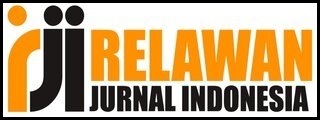Revisiting the India’s Southeast Asia policy: An Outlook of the Comparative Study about India’s NDA-UPA Governments
DOI:
https://doi.org/10.58777/ecd.v1i1.44Keywords:
India’s Neighbourhood Thinking, Look East Policy, Act East Policy, UPA, NDAAbstract
From the end of Cold War India has been accelerated to review her foreign policy and also learned specially to revive neighbourhood thinking around her territories. We know, India’s Look East Policy has been accessed now as Act East Policy towards Southeast Asia to East Asia. Now here arises a question why did India need to join with Southeast Asian Association? To explain this paper, we have three objectives like: a) to investigate the roles of different government of India about foreign policy; b) try to search the different approaches from different government if any; c) to draw a layout of India’s Southeast Asian policy. So the research paper will be further search the sufficient role and strategy of United Progressive Alliance (UPA) and National Democratic Alliance (NDA) government from then to till now
References
About Mekong-Ganga Cooperation (MGC), (2017). https://mea.gov.in/aseanindia/about-mgc.htm accessed on 21.07.2021
‘Assam as India’s Gateway to ASEAN’, Study Team, Asian Development Bank, (March 2021): 68-70. https://www.adb.org/sites/default/files/publication/684951/assam-india-gateway-asean.pdf accessed on 16.01.2022
Aurora, B.V. (2015). PM Narendra Modi keen on projecting India as a ‘soft power’, uses Buddha connection foreign policy. The Economic Times.
Bhalla, A. S. & Nachane D. M. (2001). The Economic Impact of the Asian Crisis on India and China. Palgrave Macmillan. Pp. 237-253.
Bhosale, M. (2019). Religious tourism as soft power: Strengthening India’s outreach to Southeast Asia. ORF Special Report.
Charak, Pooja (2017). A Shift in Indias Policy Towards Southeast Asia in the Post Cold War Period. University of Jammu.
Chihara, D. (1996). Hindu-Buddhist Architecture in Southeast Asia. New York: Brill.
Fiji Population and Housing Census (2017). https://ghdx.healthdata.org/record/fiji-population-and-housing-census-2017 accessed on 07.04.2020
Hall, K. R. (2011). A History of Early South East Asia: Maritime Trade and Social Development. UK: Rowman and Littlefield Publishers.
Hanjabam, Sadam & Hanjabam, Shukhdeba Sharma (Jan-Jun, 2014). SKWC Journal and Social Science, Vol. VI, Issue I.
India Cambodia Relation (2017). https://www.mea.gov.in/Portal/ForeignRelation/1_Cambodia_November_2017.pdf accessed on 17.01.2022
India Myanmar Relations (2016), https://www.mea.gov.in/Portal/ForeignRelation/Myanamr_Feb_2016.pdf accessed on 18.02.2022
India-Phillipines Relations (2016). https://www.mea.gov.in/Portal/ForeignRelation/Philippines_09_02_2016.pdf accessed on 17.01.2022
India Thailand Relation (2006). https://embassyofindiabangkok.gov.in/relationpages.php?id=123.andhttps://mea.gov.in/Portal/ForeignRelation/Thailand_Brief_Dec_2018.pdf accessed on 15.01.2022
Kesavan, K.V. (2020). India’s ‘Act East’ policy and regional cooperation. ORF
Ladwig III, Walter C. (2009). Delhi‘s Pacific Ambition: Naval Power, Look East and India‘s Emerging Influence in the Asia-Pacific. Asian Security, Vol. 5, No. 2, 87-88.
Manmohan Singh to launch new initiatives to strengthen India-ASEAN ties. (9 Oct, 2013). The Economic Times. https://economictimes.indiatimes.com/news/politics-and-nation/manmohan-singh-to-launch-new-initiatives-to-strengthen-india-aseanties/articleshow/23828769.cms?utm_source=whatsapp_pwa&utm_medium=social&utm_campaign=socia lsharebuttons&from=mdr accessed on 02.02.2022
Myint-U, Thant (2011). Where China Meets India. US Edition: The Guardian. https://www.theguardian.com/books/2011/aug/19/where-china-meets-india-review
Nandy, Dr. Debasish (Ed.). (2019). Globalization and Socio-Cultural Change: Problems and Prospects. Ahmedabad: Blue Roan Publishing.
Nag, K. (2015). Why Angkor Wat should be part of Indian history lesson. The Times of India.
Rishi, Meenakshi & Kulkarni, Kishore G. (4th October, 2000). Lessons for India from the recent financial crisis in southeast Asia. Management and Labour Studies. Vol. 25, No.4.
Saharan, V. (2015). India-Indonesia Cooperation Challenges and Way Ahead, Indonesia bilateral ties: An Introspection. Gautam Kumar Jha and Son Kuswadi (ed). New Delhi: Suryodaya Books.
Saikia, Panchali (27 Oct., 2010). Manmohan Singh in Southeast Asia. IPCS. http://www.ipcs.org/comm_select.php?articleNo=3267 accessed on 02.02.2022
See, Ambassador ChakMun (January, 2010). India's Strategic Interests in Southeast Asia and Singapore. Monohar Parrikar Institute for Defence Studies and Analysis. Volume 34, Issue 1.
Shekhar, V. (2007). India-Indonesia Relations: An Overview https://www.files.ethz.ch/isn/95449/IPCS-Special-Report-38.pdf. accessed on 11.06.2021
Shukla, N. (2020). Govt. aims to set up ‘Group of Ramayana’ nations for soft-power diplomacy push. Times of India.
Stilwell Road, Highway Asia (2022). Encyclopedia Britannica.
Thailand-Suvarnabhumi.ND.https://www.globalsecurity.org/military/world/thailand/history suvarnabhumi.ht m accessed on 15.01.2022
The Stilwell Road 70 years on (10th August 2015). BBC News
Varghese, S. (24 May, 2017). A-Z of Travel of Vietnam. The Indian Express.
Vietnam seeks ASI help in restoring temple. (6 Nov. 2011). Deccan Herald.
Ziipao, Raile Rocky (2018). Look/Act East Policy, Roads and Market Infrastructure in North-East India. Strategic Analysis: 476-489. DOI: 10.1080/09700161.2018.1523082 To link to this article: https://doi.org/10.1080/09700161.2018.1523082.
Downloads
Published
Issue
Section
Copyright (c) 2023 Joyprokash Mondal, Swaraj Das

This work is licensed under a CC Attribution-ShareAlike 4.0
 Views: 193
|
Views: 193
|
 Downloaded: 135
Downloaded: 135










